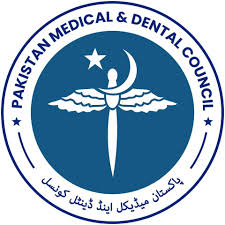Assessment of awareness, attitude and practices regarding dietary iodine in pregnant women: a cross sectional survey
Keywords:
Nutritional health education by gynecologists, nurses and paramedical staff regarding increased iodine requirement during pregnancy and lactation by supplementation of pregnant women is required to improve the iodine status of pregnant females.Abstract
Context: Iodine deficiency can impair brain development both in natal and post natal life. There is high prevalence (52%) of iodine deficiency among women of reproductive age in urban areas.
Aims: The purpose of this study is to explore knowledge, prevalent attitude and practices about Iodine consumption in pregnant females of a local community in Lahore, Pakistan.
Settings and Design: Cross-sectional study based on non-probability convenient sampling technique. Pregnant women (n=400) of any age have been targeted to respond for the survey.
Methods and Materials: The study population consisted of pregnant women presenting in the outdoor department of Shalamar Hospital, Lahore. Data were obtained by face-to-face interviewing using a structured questionnaire. The data was collected during the three months period from September to November 2011.
Statistical analysis used: The analysis was done on SPSS version 13
Results: Awareness of the undesirable health effects of insufficient iodine intake during pregnancy and lactation was poor among the participants almost 95% of mothers, did not know what has been recommended as a daily dietary allowance (RDA) of iodine during pregnancy and lactation. Only 4% of the respondents identified correctly all the good sources of iodine such as fortified salt (88.6%), marine fish (49.9%) and milk (39.5%), from a given list of sources. Vegetables (51.7%) and fruits (35%) were most incorrectly regarded good sources of iodine, whereas, poultry/meat (74.5%) and fruits (65%) were most correctly recognized not good sources of iodine. inaccurately identified good sources of iodine included cheese (75.6%), yogurt(75.3%) and milk (60.5%). Almost 43% of the respondents disregarded that iodine deficiency disorders exist in their vicinity, whereas, 72.5% of women surveyed, reported that iodized salt was being used in their households.
Conclusions: The health knowledge of pregnant women regarding; recommended daily dietary allowances of iodine during pregnancy and lactation, good sources of iodine, dietary supplementation of iodine during pregnancy and lactation, and awareness about common deficiency diseases of iodine was limited. Health education regarding increased iodine requirement during pregnancy and lactation by supplementation of pregnant women is required to improve the iodine status of pregnant females.
Downloads
Published
How to Cite
Issue
Section
License
The Journal of Fatima Jinnah Medical University follows the Attribution Creative Commons-Non commercial (CC BY-NC) license which allows the users to copy and redistribute the material in any medium or format, remix, transform and build upon the material. The users must give credit to the source and indicate, provide a link to the license, and indicate if changes were made. However, the CC By-NC license restricts the use of material for commercial purposes. For further details about the license please check the Creative Commons website. The editorial board of JFJMU strives hard for the authenticity and accuracy of the material published in the journal. However, findings and statements are views of the authors and do not necessarily represent views of the Editorial Board.

















